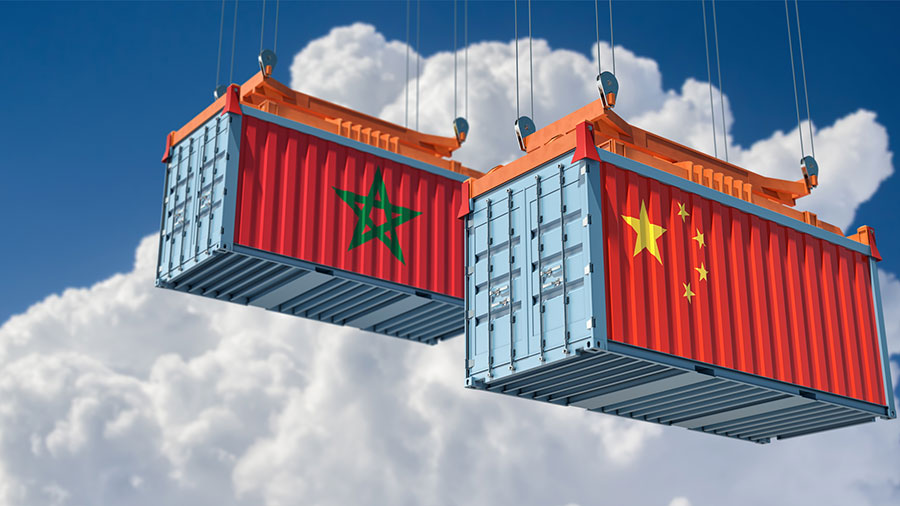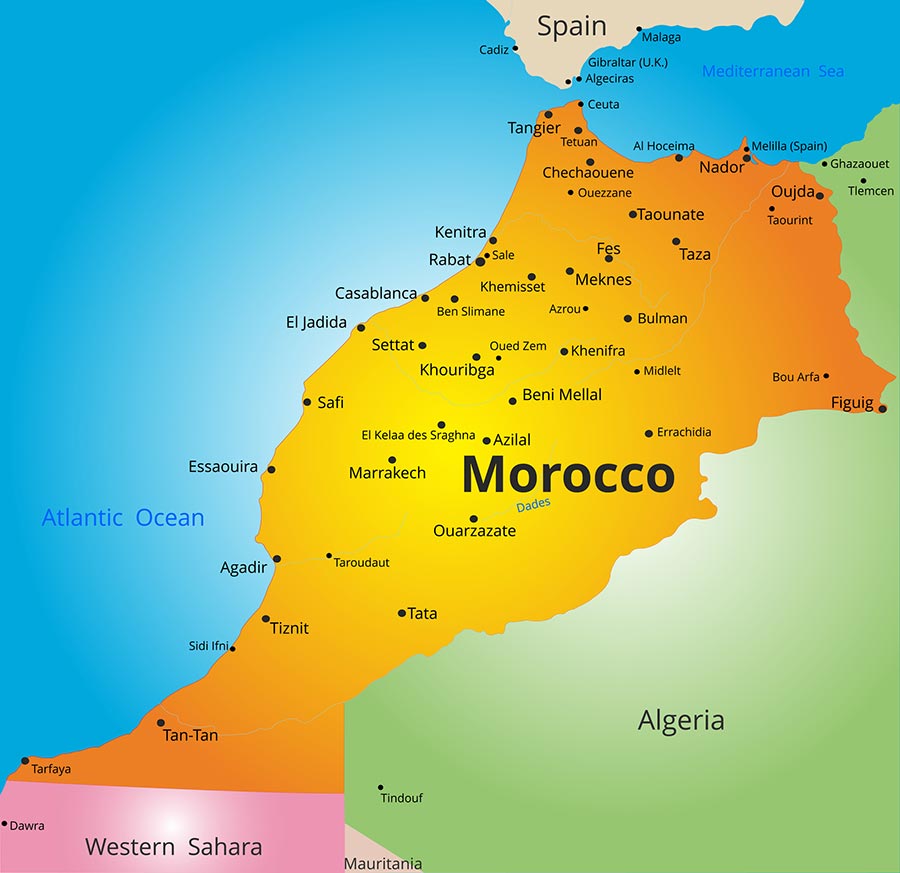Morocco Upgrades China’s Belt And Road Initiative Financing & Investment Agreements

Morocco’s access to AfCFTA means Chinese export manufacturing in the country will boom
Nasser Bourita, Morocco’s Minister of Foreign Affairs, and Ning Jizhe, the Vice-Chairman of the Chinese National Commission for Reform and Development (NCRD), have signed (during a videoconference) an MoU titled the ‘Implementation Plan on Jointly Building the Belt and Road Initiative between Morocco and China.’ The document was signed on January 5 and follows on from a successful State visit by Morocco’s King Mohammed VI to China in May 2016, a pivotal step which resulted in the signing of the Joint Declaration on the establishment of the strategic partnership between Morocco and China. That agreement remains one of the very few legal instruments signed personally by the King, underlining its importance to Morocco. The country originally joined the BRI in 2017.
The Moroccan Government stated that the new agreement aims to promote access to the Chinese financing provided by the Belt and Road initiative, for the establishment of large-scale projects in Morocco, the facilitation of trade and joint ventures in different fields such as industry, energy, Research and Development, technological and technical cooperation as well as vocational training.
It comes following successful JV partnering during Covid in establishing an industrial unit for the fill and finish manufacturing in Morocco of China’s Sinopharm vaccine.
In 2020, Morocco-China bilateral trade reached US$4.76 billion.
The main products that Morocco exports to China are Raw Copper (US$50.8M), Calcium Phosphates (US$43.3M), and Zinc Ore (US$41.7M). During the last 25 years, Moroccan exports to China have increased at an annualized rate of 9.05%. The main products that China exports to Morocco are Broadcasting Equipment (US$278M), Tea (US$226M), and Pile Fabric (US$153M). During the last 25 years, Chinese exports to Morocco have increased at an annualized rate of 15.1%.
Chinese investment into Morocco itself to date has been relatively small at about US$1.6 billion, but this is set to change. Previously, Spain had been the dominant player in North African shipping to Asia, but Morocco has now surpassed Spain in volume terms, and is set to be both the largest and most important regional player in North Africa-Europe-Asian supply chains.

Examples have already been set: In 2016, China Railway Major Bridge Engineering Group completed construction of a 950-metre bridge between Rabat and Sale, the longest in Africa.
Competition with France is also an issue, with China having its eyes on Morocco’s auto industry, where Renault is the market leader, and in 2019 opened a new car manufacturing plant in Kenitra. However, in an agreement between Renault and China’s Nanjing Xiezhong Group, the latter announced it would construct a US$15 million facility in Kenitra to supply air conditioners to Renault’s vehicles. China’s CITIC Dicastal likewise announced it would open a plant in Kenitra. CITIC Dicastal is a global leader in aluminium cast automotive components and its plant will have the capacity to supply six million pieces annually to Renault in Morocco. Morocco has a goal to produce 1 million cars annually by 2025. In 2017, China’s electrical vehicle manufacturer BYD Auto signed off an agreement to build a 2,500-person plant to become Morocco’s third automaker, although this has been delayed, activity will now ramp up again.
Morocco is a member of the African Continental Free Trade Agreement (AfCFTA) which means that sourcing and combining African products and then applying combined manufacturing parts from across Africa is now viable. Morocco also has FTAs with Egypt, Jordan, Tunisia, Turkey, and the United Arab Emirates (UAE), and has advanced trade status with the European Union. Chinese manufacturers are now taking advantage of these trade relationships.
Morocco has a GDP of some US$332 billion and a population of slightly over 37 million. GDP per capita is US$9,500. It is the only country in the North African region to have 3 Confucius institutes.
Related Reading
About Us
Chris Devonshire-Ellis is the Chairman of Dezan Shira & Associates. The firm assists British and Foreign Investment into Asia and has 28 offices throughout China, India, the ASEAN nations and Russia. For strategic and business intelligence concerning China’s Belt & Road Initiative please email silkroad@dezshira.com or visit us at www.dezshira.com





